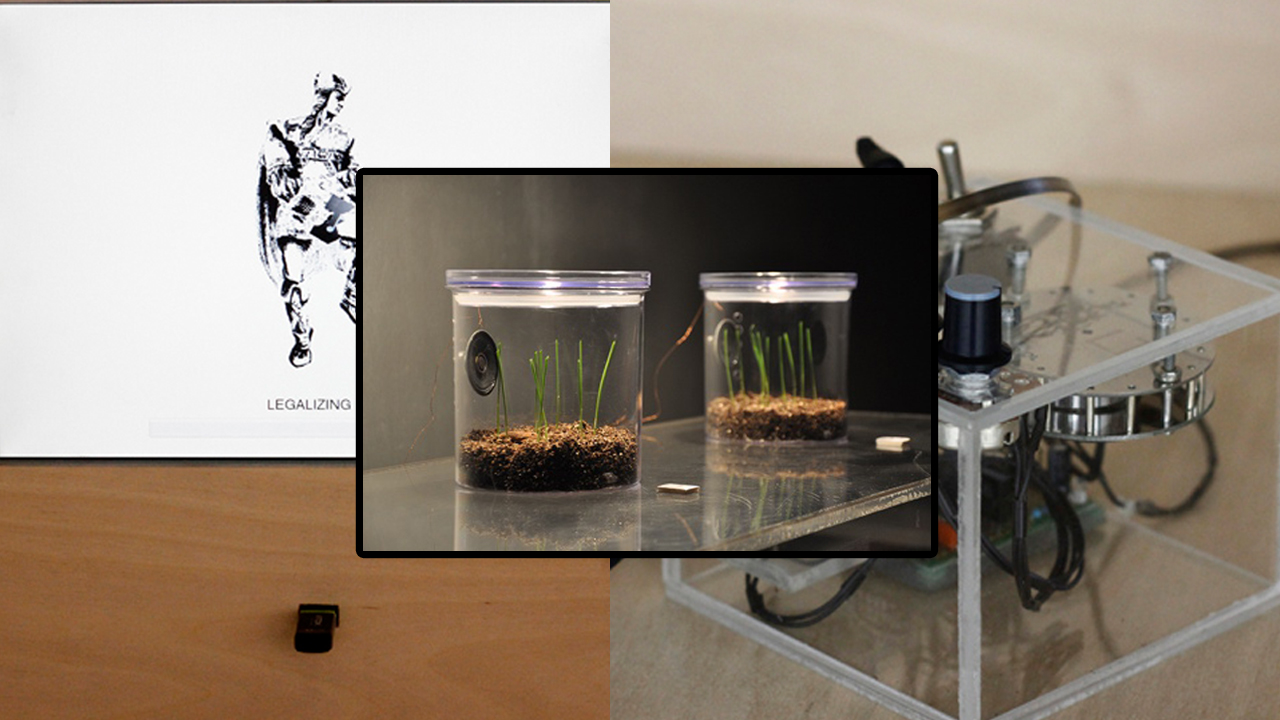From Lacplesis Technology, here is LT-ML002 — “a pirated music legislation software.” Just insert a portable USB media device, and LT-ML002 will locate all you mp3s, cut them up and rearrange them. “You get sounds of your favorite songs in new unique compositions,” no copyright infringement intended! Like this:
Lacplesis Technology (Andris Vetra and Artis Kupriss in collaboration with programmer Viesturs Kavacs) explains, in an interview with We Make Money Not Art:
Technically it is illegal to take and/or make changes with anything at all without the authors’ permission. If something is recorded and put under copyright no one can use it without permission. So our legalization software does that illegally and the actual result is not really legal but the idea is to make the result hard to recognize for responsible institutions. But snippets taken by LT-ML002 are approximately 10 to 100 milliseconds long. After the legalization process, most of them are changed in time scale as well (made faster or slower) so the length of the new composition is different.
But wait, there’s more. LT-GR002 is “an alternative media player.” It’s all analog, making its own mechanical sounds with “a clapper.” A rotating spring hits metal bars; the sound is picked up by a contact mic; the sound is sent to a mini jack output via an amplifier; you plug in speakers or headphones, and viola! No copyright infringement, ever.

It makes what the artists describe as “analog dance music.” Have a listen:
Lastly, meet the LT E1-FLAX which “researches how pirated music effects living organisms.” Apparently, high frequency sounds effect plants’ stomata bits. As exhibited at the Renewable Futures Conference at Liepaja University’s Art Research Lab (where it was spotted by We Make Money Not Art), the apparatus featured 10 flax seeds in two identical boxes near two identical speakers fed an identical amount of water and sunlight listening to Raimonds Pauls’ “Zilie lini (Blue Flax).” One track is legally acquired. One is pirated.
“Results were quite similar though in the container with pirated music the plants grew little bit taller,” the artists insist.

Their projects aim to explore two conflicting paragraphs in Article 27 of the Universal Declaration of Human Rights:
Everyone has the right freely to participate in the cultural life of the community, to enjoy the arts and to share in scientific advancement and its benefits.
Everyone has the right to the protection of the moral and material interests resulting from any scientific, literary or artistic production of which he is the author.
It’s a doozy. Read the full interview at We Make Money Not Art. Now excuse us, we have some electronic music to play to plants. (Images: Lacplesis Technology)


